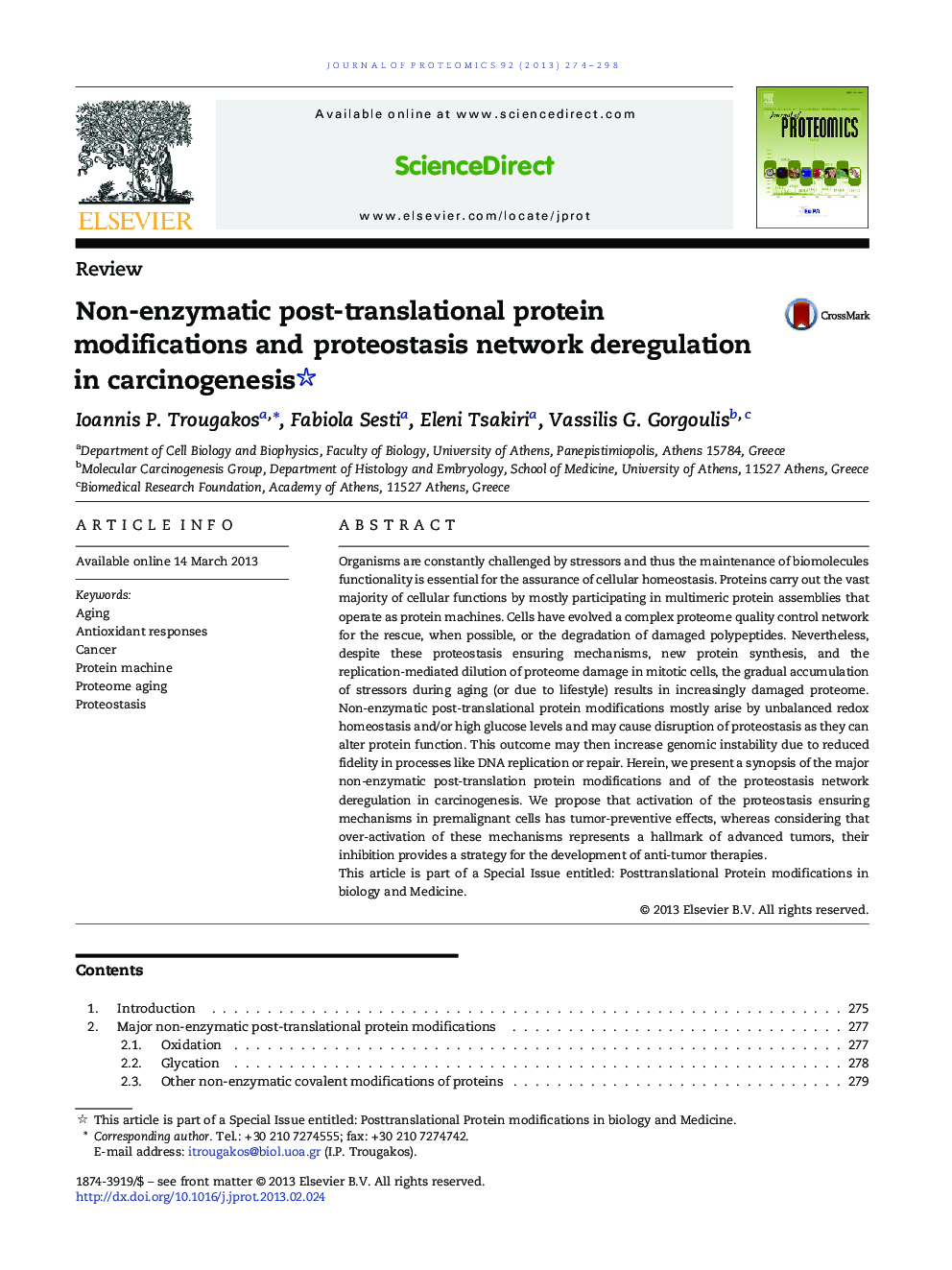| کد مقاله | کد نشریه | سال انتشار | مقاله انگلیسی | نسخه تمام متن |
|---|---|---|---|---|
| 1225494 | 1494788 | 2013 | 25 صفحه PDF | دانلود رایگان |

• Proteome functionality is essential for the assurance of cellular homeostasis.
• To ensure proteostasis cells have evolved a complex proteome quality control network.
• The gradual accumulation of stressors during aging disrupts proteostasis.
• Non-enzymatic posttranslational protein modifications induce proteome instability.
• Proteome instability can then promote genomic instability and carcinogenesis.
Organisms are constantly challenged by stressors and thus the maintenance of biomolecules functionality is essential for the assurance of cellular homeostasis. Proteins carry out the vast majority of cellular functions by mostly participating in multimeric protein assemblies that operate as protein machines. Cells have evolved a complex proteome quality control network for the rescue, when possible, or the degradation of damaged polypeptides. Nevertheless, despite these proteostasis ensuring mechanisms, new protein synthesis, and the replication-mediated dilution of proteome damage in mitotic cells, the gradual accumulation of stressors during aging (or due to lifestyle) results in increasingly damaged proteome. Non-enzymatic post-translational protein modifications mostly arise by unbalanced redox homeostasis and/or high glucose levels and may cause disruption of proteostasis as they can alter protein function. This outcome may then increase genomic instability due to reduced fidelity in processes like DNA replication or repair. Herein, we present a synopsis of the major non-enzymatic post-translation protein modifications and of the proteostasis network deregulation in carcinogenesis. We propose that activation of the proteostasis ensuring mechanisms in premalignant cells has tumor-preventive effects, whereas considering that over-activation of these mechanisms represents a hallmark of advanced tumors, their inhibition provides a strategy for the development of anti-tumor therapies.This article is part of a Special Issue entitled: Posttranslational Protein modifications in biology and Medicine.
Figure optionsDownload high-quality image (254 K)Download as PowerPoint slide
Journal: Journal of Proteomics - Volume 92, 30 October 2013, Pages 274–298